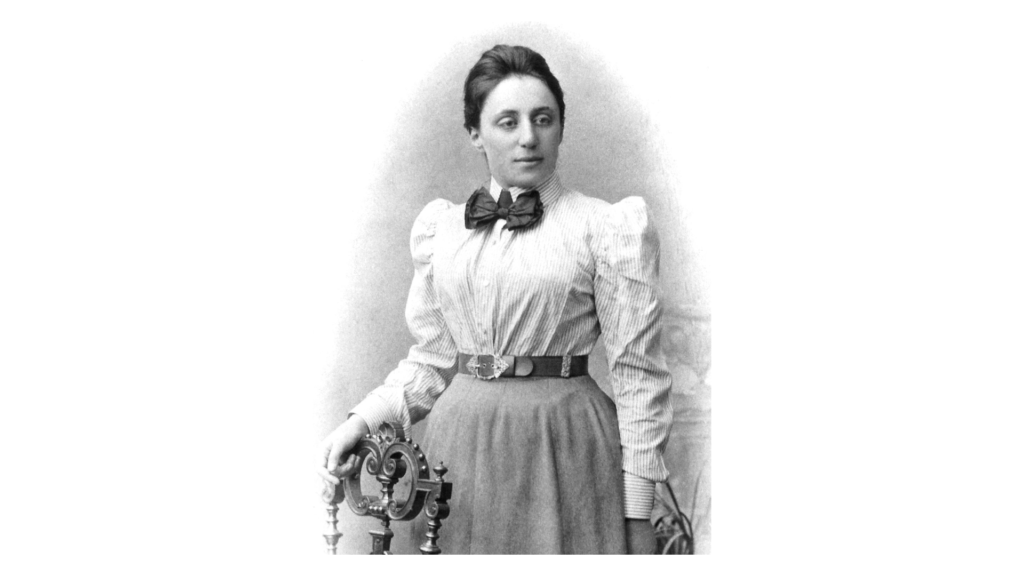Emmy Noether
Emmy Noether (1882–1935), the mother of modern algebra, was one of the leading mathematicians of her time. Described as a “creative mathematical genius” by fellow German Albert Einstein, she gained recognition as the most creative abstract algebraist in modern maths, and Noether’s theorem in physics explains the connection between symmetry and conservation laws.

Early life
Born on March 23, 1882 in Erlangen, Germany, Emmy Noether (1882-1935), is a fresh face amongst the rambling list of male prodigies. What was life like for a woman pursuing maths at the time? Well, Noether was born into a Jewish family. Her father was Max Noether, who was a prominent mathematician, exposing her to the art from an early age.
She initially studied languages and literature, as women at the time were often discouraged from pursuing higher mathematics. What difference does gender make when it comes to maths? I’m as clueless as you are. Nevertheless, she pursued mathematics at the University of Erlangen, earning her doctorate in 1907.
Career
Noether was also certified to teach English and French! It turns out she preferred three over ‘oui’, as she returned to Erlangen in 1904 when women were allowed to be full students there. She received a PhD degree in 1907, with a dissertation on algebraic invariants. She remained at Erlangen, where she worked without pay on her own research and assisting her father.
As a Jewish woman in early 20th-century Germany, Emmy Noether faced significant obstacles. Initially, she was not allowed to teach formally at universities. She often lectured without pay and under male colleagues’ names, and after the rise of the Nazis in 1933, she was dismissed from her position in Germany due to her Jewish heritage.
Not skipping a beat, Noether moved to the United States and took a position at Bryn Mawr College and lectured at Institute for Advanced Study in Princeton. Didn’t turn out so bad for her, then? It turns out she was forced to flee from her home into a much less prestigious position, despite her international reputation. She died at the young age of 53 following a complication during a surgery. However, her contributions to the world of mathematics cannot be understated. In fact, the multiple hardships, including antisemitism and sexism, only stand to elevate her discoveries to another level.
Discoveries
Noether didn’t just do maths, she changed the way we think about it. One of her biggest breakthroughs was Noether’s theorem in physics, which showed that whenever nature has symmetry, there’s something that always stays the same. Energy, momentum, things like that.
She also figured out how to organise really complicated mathematical structures, now called Noetherian rings. Think of it like putting a messy pile of blocks into neat towers so they don’t topple over. Suddenly, maths that used to be impossible to manage started to make sense.
Then there’s her work in abstract algebra. Instead of just solving one problem at a time, she studied patterns and rules that applied to everything. Today, that work is the backbone of so much, from maths to secret codes to physics.
Legacy
Despite the clear injustice Emmy Noether faced throughout her short life, she achieved more than many mathematicians ever would, especially given her position. From her legacy at the University of Erlangen to her legendary discoveries in the USA, Noether is one of the greatest mathematicians to ever exist, though, being the mother of algebra, I want to know why she didn’t do something about all those pesky little xs and ys.